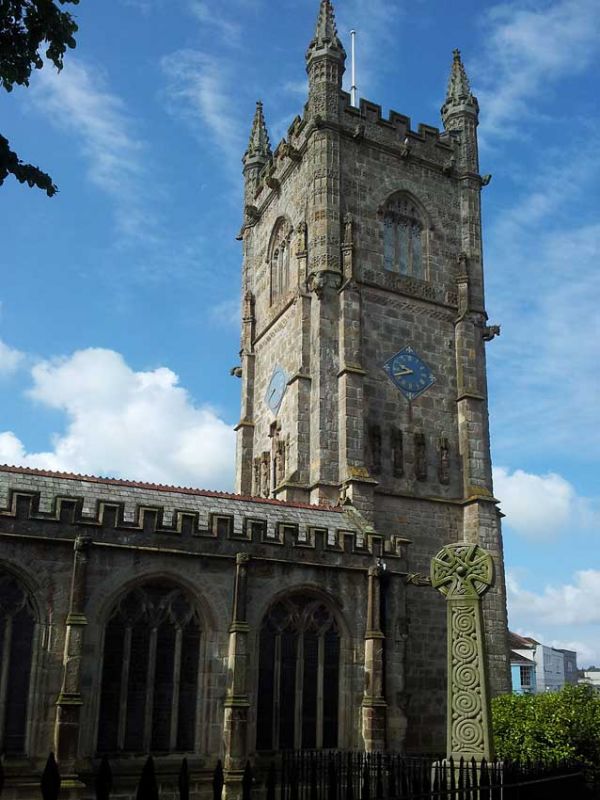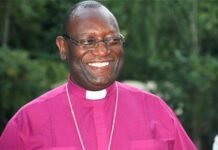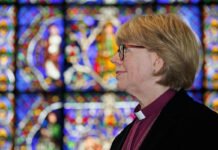A dossier by Save the Parish Cornwall, now passed to Anglican Ink, accuses the Church of England’s Bishops in Truro Diocese of imposing an ideologically-driven plan for ‘worship hubs’ on Cornish parishioners.
The report, entitled ‘Don’t Turn Off the Lights, Bishops’, says Truro Diocese has now been turned into an ‘almost exclusively Holy Trinity Brompton-style diocese’, with the ethos of that large evangelical charismatic church in London’s Knightsbridge being imposed on rural Cornish churches.
The dossier, circulated within the diocese last July but not made available in full to journalists, says the bishops’ plan to put parishes into ‘clusters’ under one ordained ‘oversight’ minister ‘removes clergy from day-to-day contact with their parishioners and creates a top-heavy bureaucracy’.
The dossier quotes an anonymous member of the clergy saying the bishops’ plan ‘wasn’t really about finance. It was a policy decision to create worship hubs in towns and cities’.
The 10-year Diocesan Plan for Change and Renewal was agreed by Truro Diocesan Synod in May 2023, but Save the Parish Cornwall (StPC) says the decision was ‘undemocratic’ because a third of the lay seats on the synod were unoccupied. The plan is the result of an initiative called ‘On the Way’, which the then Bishop of Truro, Philip Mounstephen, and the suffragan Bishop of St Germans, Hugh Nelson, launched in the diocese’s deaneries in 2021.
According to the report’s introduction, the reference to ‘The Lights’ in the title is drawn from the painting in Truro Cathedral by Cornish artist, John Miller – ‘Cornubia, Land of the Saints’:
‘The artist looks down over the Cornish peninsula from some height… and sees the land stretching out into the Atlantic, dotted with lights. Each light is a parish church. A central beam shines down on the Cathedral.
‘Cornwall has for centuries been the land of the Celtic saints. We are blessed with historic churches and loyal congregations who have kept the flame alive.
‘It is no less than a tragedy that Cornwall’s Bishops – for ideological reasons – are now turning out these lights.’
The dossier says in its summary: ‘The plans have been driven by ideology, not by economic necessity. People were told throughout most of the process that money was the issue: it is not…The Diocese is not in financial crisis and can afford to pay to put more clergy into the field if it so wishes…There is deep underlying dissent, (but people do not speak up out of fear). Ordained clergy fear for their jobs so will not speak publicly.’
In October, Truro’s Bishop’s Diocesan Council (BDC) met to consider the StPC report. The BDC then issued what it called ‘a robust response’. It said: ‘In response to an agenda item introducing a dossier from local campaigners, members proposed, and unanimously passed, a motion to “strongly support the approach taken by the diocesan leadership with groups concerned with the policy and direction of the diocese”.’
The Revd Jeffrey Terry, BDC member and Priest-in-Charge of the Camel Allen Benefice, was quoted as saying: ‘A minority group are seeking to ride roughshod over the structures and procedures of the Church of England. I fully approve of the way in which Bishop Hugh and the diocesan officers have responded to this undemocratic challenge.’
The StPC report concludes: ‘Large benefice/cluster models take church away from people. The Church of England’s own research shows that churches prosper when there are clergy on the ground, and that the buildings do matter.
‘The oversight ministry model wastes scarce ministry and pastoral resource on back-office administration. Clergy are wanted – and needed – as ministers, not “managers”.’
Bishop Mounstephen, who became Bishop of Truro in 2018, announced in July that he was leaving the diocese to become Bishop of Winchester in January 2024.
Julian Mann is a former Church of England vicar, now an evangelical journalist based in the UK.




… [Trackback]
[…] Read More: anglican.ink/2023/12/07/cornwalls-flame-of-faith-being-deliberately-doused-by-parish-consolidation-save-the-parish-charges/ […]